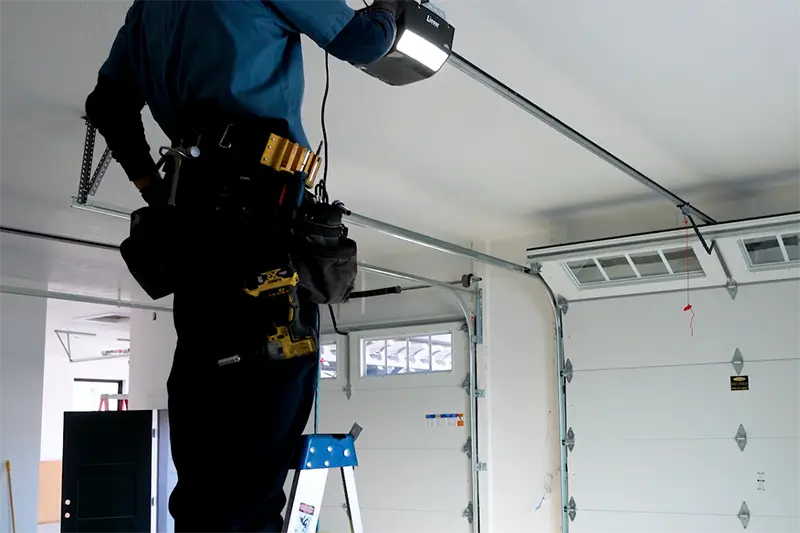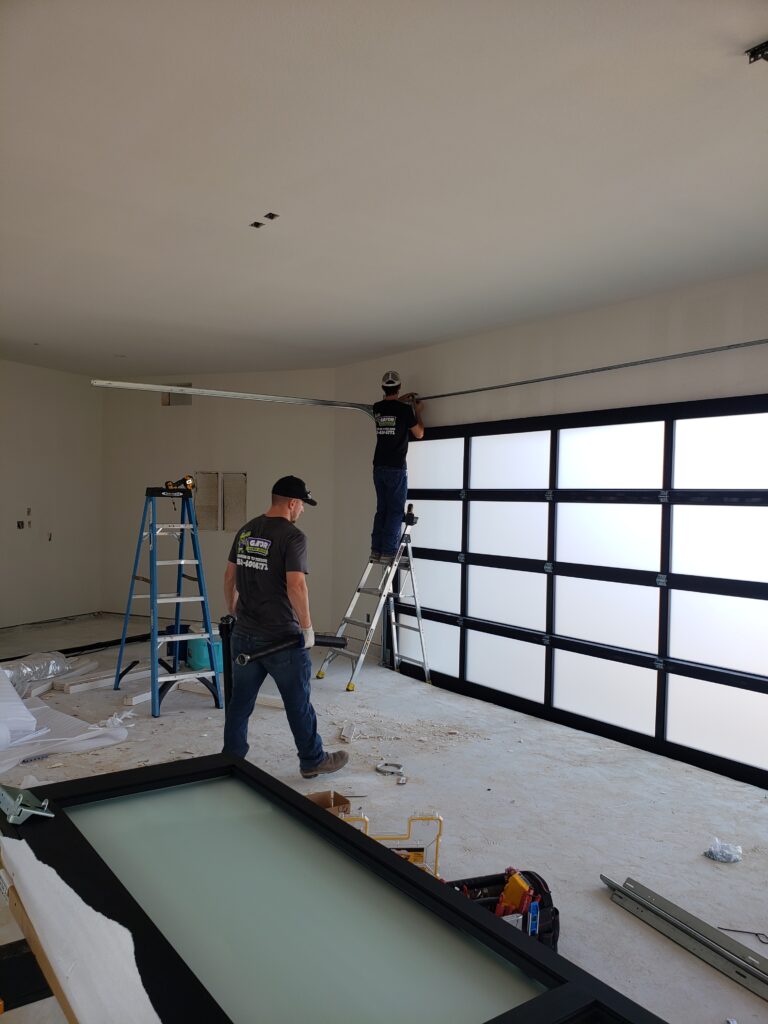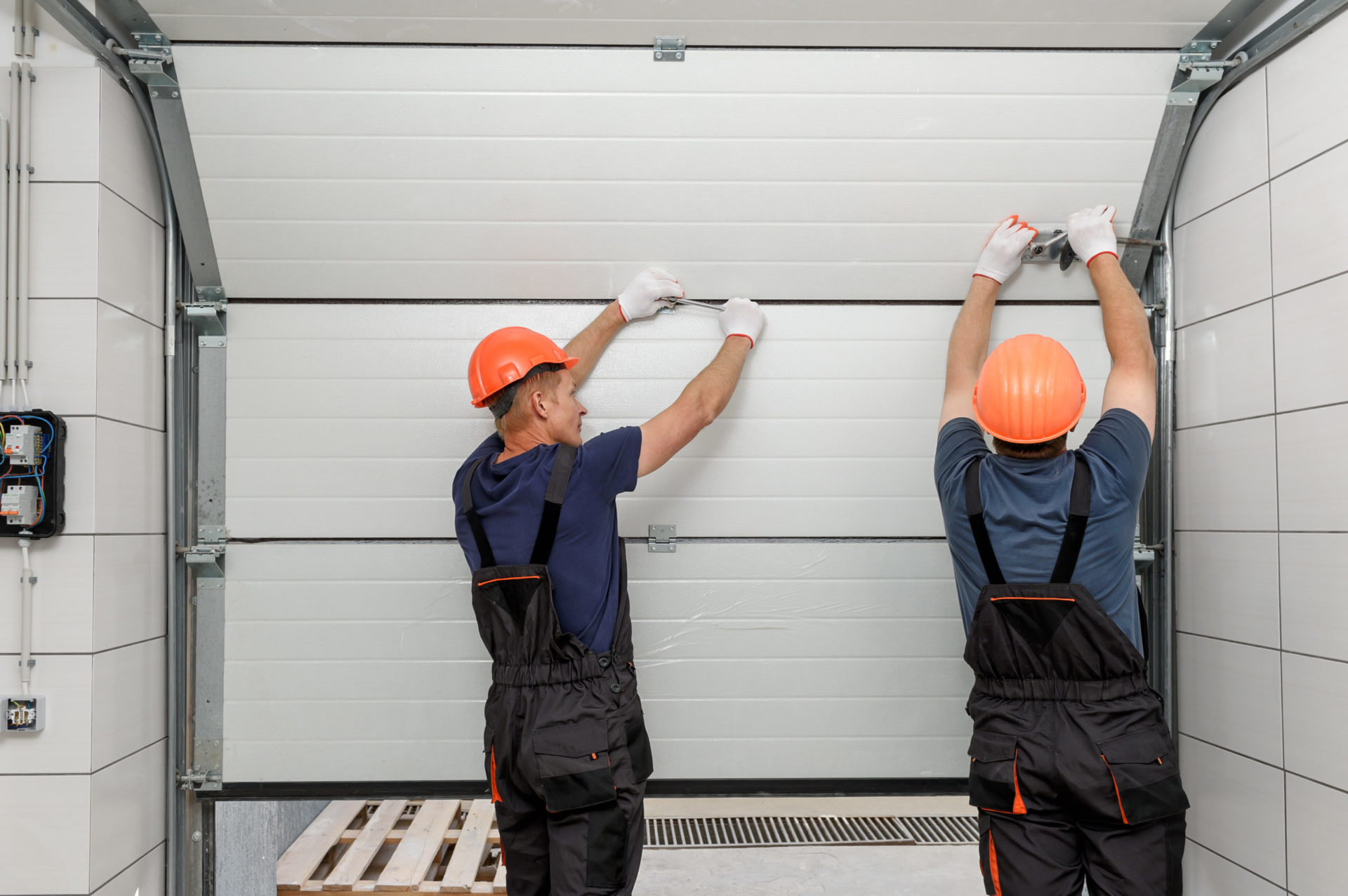Same Day Garage Door Repair Reseda Expert Garage Door Opener Installation

One of essentially the most telltale indicators of a defective garage door sensor is that if the door does not shut utterly. Instead of absolutely closing, the door might reverse and open again when it senses an object. In some circumstances, you might discover that the garage door initiates closing but then quickly reverses back up. This habits can be attributed to misaligned sensors, permitting them to falsely interpret an obstruction.

Physical obstruction is one other factor to contemplate. Dirty or blocked sensors might not function correctly. Check to see if there is any filth, particles, or spider webs obstructing the sensor lenses. A simple cleansing may resolve the difficulty. Using a soft fabric, gently wipe the lenses to ensure they're clear and free of any obstacles.
Garage Door Motor Repair Reseda Garage Door Repair & Replacement
A malfunctioning garage door opener remote can sometimes be misdiagnosed as a sensor problem. If the remote fails to speak with the garage door, it’s worth testing the sensors immediately. Use the wall button to open and shut the door. If the door operates usually with the wall switch but not with the remote, the issue could lie with the remote itself.
Testing the sensors instantly can help determine their operational standing. To do that, you can use an object to block the sensor beam whereas the door is closing. If the door reverses upon sensing the obstruction, the sensors are probably functioning correctly. If the door continues to shut without reversing, this signifies an issue with one or each of the sensors.
Environmental elements might additionally have an effect on sensor performance. If the sensors are exposed to heavy rain, snow, or excessive warmth, they might malfunction. Even humidity can play a role in sensor reliability. If the weather has been significantly harsh, consider whether these circumstances could be impacting your sensors.
Electrical points also can result in sensor malfunction. Inspect the wiring connecting the sensors to the garage door opener. Look for frayed or broken wires, which can forestall the sensors from receiving power or speaking properly with the garage door system. If the wiring seems good, verify the facility supply to the opener itself.
Garage Door Photo-Eye Sensor Reseda High-Quality Garage Door Parts
In some situations, inside malfunctions might happen within the sensors. Over time, the inner mechanisms can wear out, leading to unexpected failures. If cleansing and adjustments don't yield constructive results, sensor replacement could additionally be the best course of action (Garage Door Installation her explanation Cost Reseda). Many garage door sensors are relatively inexpensive and easy to exchange.
In addition, it might be prudent to consult the manufacturer’s manual for particular troubleshooting ideas related to your model. Each garage door system can differ, and the manual may provide guidance that is particularly related to your scenario. Following these tips can usually enhance the troubleshooting course of.
Garage Door Keypad Installation Reseda CA Residential Garage Door Maintenance
Regular maintenance can lengthen the life of your garage door sensors. Periodic cleaning, testing, and visible inspections can help catch points early before they escalate into important issues. Regular care can be certain that your sensors are in good working condition, maintaining the protection of your garage door operation.

In summary, the importance of understanding the method to inform if a garage door sensor is bad can't be overstated. From evaluating physical obstruction and sensor alignment to testing the wiring and inside elements, a spread of factors contribute to sensor functionality.
Garage Door Off Track Repair Reseda Reliable Garage Door Services
Regular maintenance, mixed with thorough testing, can even prevent future points (Garage Door Sensor Repair Reseda CA). When unsure, reaching out to professionals can present reassurance and much-needed experience. Ultimately, making certain that your garage door sensors are functioning correctly enhances the general safety of your home and its automatic techniques.
- Check for blinking or strong lights on the sensor; a solid light typically signifies normal operation, whereas blinking might signify a problem.
- Test the alignment of the sensors; misaligned sensors can stop the door from functioning properly, resulting in a potential failure.
- Look for any seen injury or obstructions close to the sensors; dust, spider webs, or bodily breakage can intrude with their operation.
- Listen for uncommon sounds when the garage door is operated; grinding or clicking noises can point out sensor malfunction.
- Conduct a manual check by inserting an object within the door’s path; if the door doesn't reverse, the sensors may be defective.
- Inspect the wiring related to the sensors for frays or loose connections that might disrupt energy provide or performance.
- Evaluate the temperature situations; excessive weather can affect sensor performance, leading to temporary issues.
- Use a multimeter to verify for power operating to the sensors; an absence of voltage can indicate a sensor drawback or wiring problem.
- Consider the age of the sensors; older fashions could turn into unreliable and better replaced somewhat than repaired.
- Seek skilled help if the issue persists regardless of troubleshooting; an professional can diagnose issues that is in all probability not instantly obvious.undefinedHow can I inform if my garage door sensor is malfunctioning?undefinedCheck for a purple or amber gentle on the sensor. If it’s not illuminated or blinking, the sensor may be unhealthy. Additionally, you'll find a way to manually block the sensor and see if the garage door reacts properly — if it doesn't reverse, the sensor would possibly need replacement.
What are the common signs of a faulty garage door sensor?undefinedCommon signs embody the garage door failing to close utterly, erratic motion, or not responding to remote commands. A misaligned sensor may additionally set off these read the full info here points, so examine their positioning as part of your diagnostic process.
Can a foul garage door sensor forestall the door from closing?undefinedYes, a malfunctioning sensor can cause the garage door to reverse or fail to shut. This is a security function designed to forestall injuries or accidents, so take note of the habits of your garage door.
Custom Garage Doors Reseda Garage Door Installation & Repair
How do I clean my garage door sensors?undefinedTo clear garage door sensors, gently wipe the lenses with a delicate, dry material. Avoid using harsh chemical compounds, which can harm the sensor. Regular cleaning can enhance performance and stop sensor-related points.
What should I do if my garage door sensor is misaligned?undefinedCarefully realign the sensors so they face each other immediately. Use a stage to examine their positioning. If aligning them doesn’t resolve the issue, consider in search of skilled help for further inspection.
Garage Door Remote Reseda Garage Door Tune-Up Services
Is it essential to replace both sensors if one is bad?undefinedWhile it isn't strictly needed to replace both, doing so is advisable. Installing a model new sensor with an old one might result in compatibility points, affecting the garage door's efficiency.
Can weather affect the efficiency of garage door sensors?undefinedYes, excessive climatic conditions can influence performance. Heavy rain, snow, or humidity would possibly obscure the sensors or affect their alignment. Regular maintenance and inspection during seasonal adjustments can help mitigate these effects.

24-Hour Garage Door Repair Reseda CA Residential and Commercial Garage Doors
What if my garage door sensor still doesn’t work after replacement?undefinedIf the brand new sensor doesn’t resolve the problem, check for wiring problems or consult knowledgeable technician. There could also be additional issues with the garage door opener or other parts that require consideration.